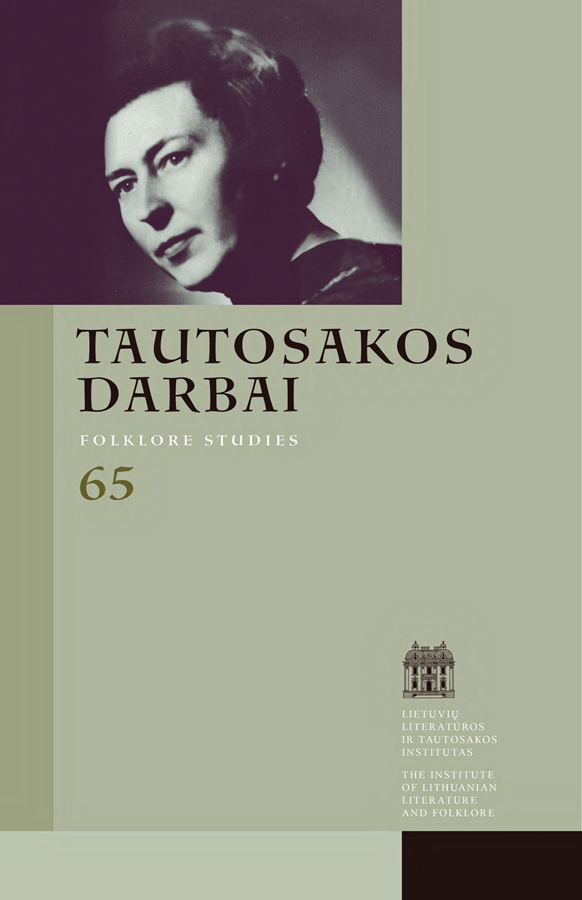Song as a Propaganda Tool: Surveying the Soviet Time Songbooks
Abstract
The subject of the article comprises the repertoire of the Soviet-period songbooks. The author focuses on personal song collections compiled in the first half of the Soviet-period, which is identified in historiography with Stalinism and the Thaw. The aim is to find out how the contents of songbooks changed during the first two or three decades after the occupation of Lithuania. According to the analysis, during the WWII and the first postwar decade, the songbook repertoire was influenced by the interwar folksong tradition, especially romances, the military-historical and literary songs. Subsequently, however, the Lithuanian patriotic thematic fades out and is replaced with popular songs broadcasted by the mass media. Inclusion of ideologically marked songs into personal song collections reflects the strong Soviet indoctrination experienced by the society. Mass culture broadcasted by the official media and bolstered by numerous amateur song and dance groups served for entrenching postulates of the communist ideology in the society. This is shown in the article by detailed discussion of the main features of the Soviet-period song lyrics and aesthetics.
Downloads
Most read articles by the same author(s)
- Vita Džekčioriūtė, Aušra Žičkienė, Jūratė Šlekonytė, Gražina Kadžytė, Jurgita Ūsaitytė, Lina Būgienė, Daiva Vyčinienė, Chronicle , Tautosakos darbai: Vol. 48 (2014)
- Audronė Gedžiūtė, Jūratė Šlekonytė, Jurgita Ūsaitytė, Vita Ivanauskaitė-Šeibutienė, Chronicle , Tautosakos darbai: Vol. 57 (2019)
- Jurgita Ūsaitytė, Reception of Folksongs in the Lithuanian Press of the National Revival , Tautosakos darbai: Vol. 58 (2019)
- Modesta Liugaitė-Černiauskienė, Jurgita Ūsaitytė, Foreword , Tautosakos darbai: Vol. 69 (2025): Tautosakos darbai
- Jurgita Ūsaitytė, Personal Collections of Texts from the Second Half of the 19th Century along with Their Historical Context , Tautosakos darbai: Vol. 55 (2018)
- Jurgita Ūsaitytė, The News in Album Studies (Two Case Reviews) , Tautosakos darbai: Vol. 52 (2016)
- Jurgita Ūsaitytė, Songbooks as a Mode of Personal Notes , Tautosakos darbai: Vol. 50 (2015)
- Jurgita Ūsaitytė, Foreword , Tautosakos darbai: Vol. 48 (2014)
- Jurgita Ūsaitytė, Foreword , Tautosakos darbai: Vol. 63 (2022)
- Jurgita Ūsaitytė, Foreword , Tautosakos darbai: Vol. 59 (2020)
